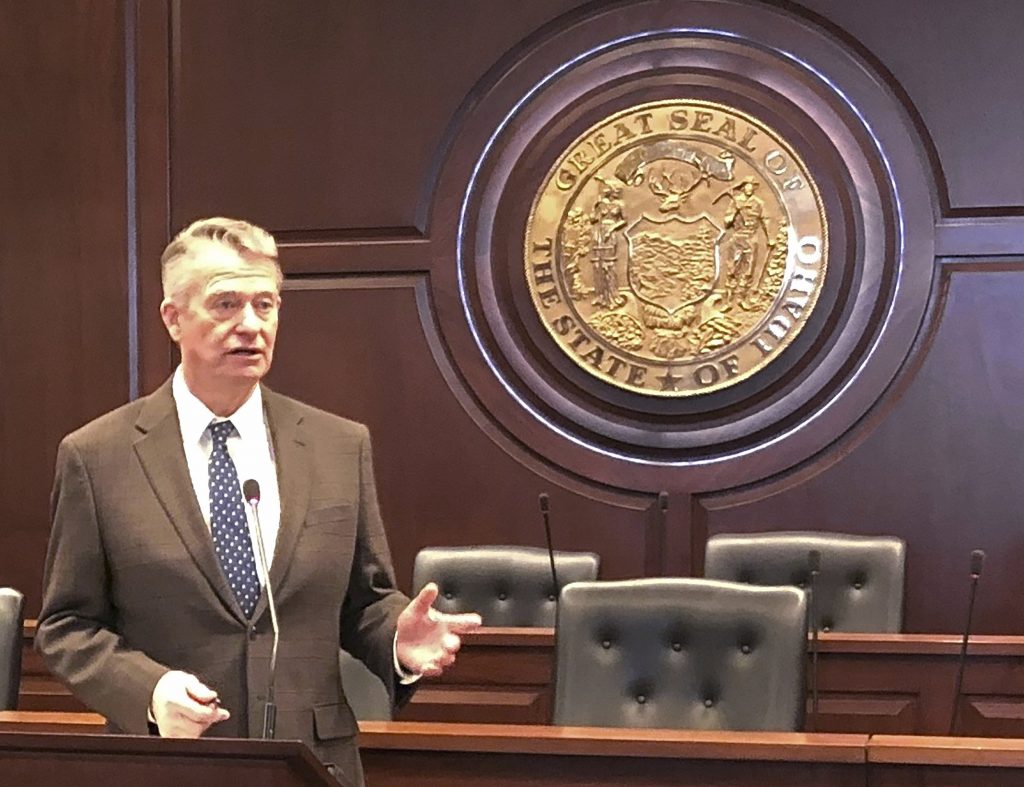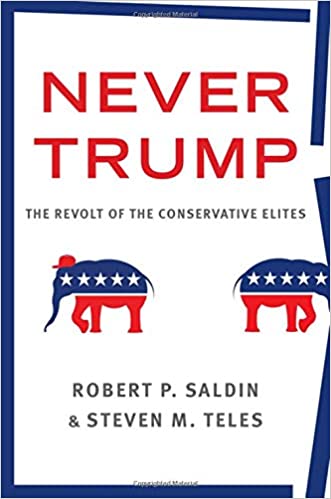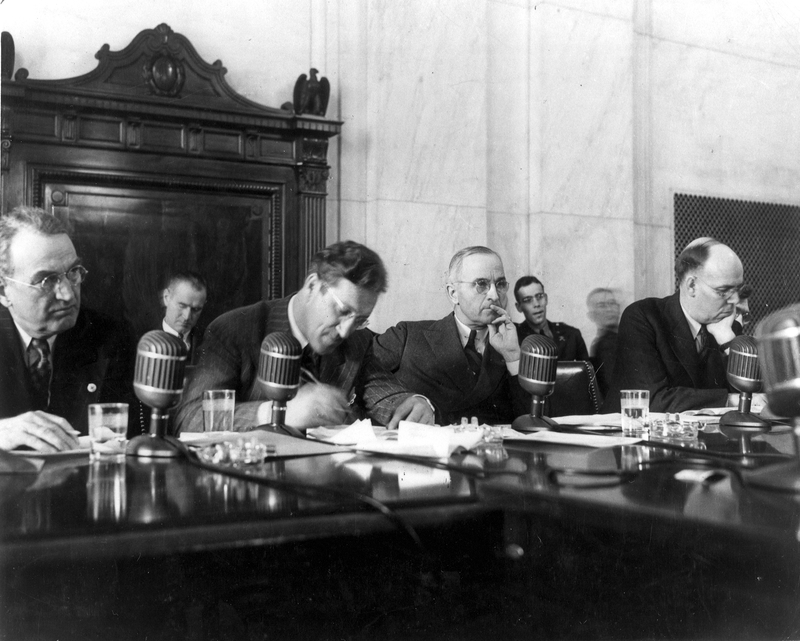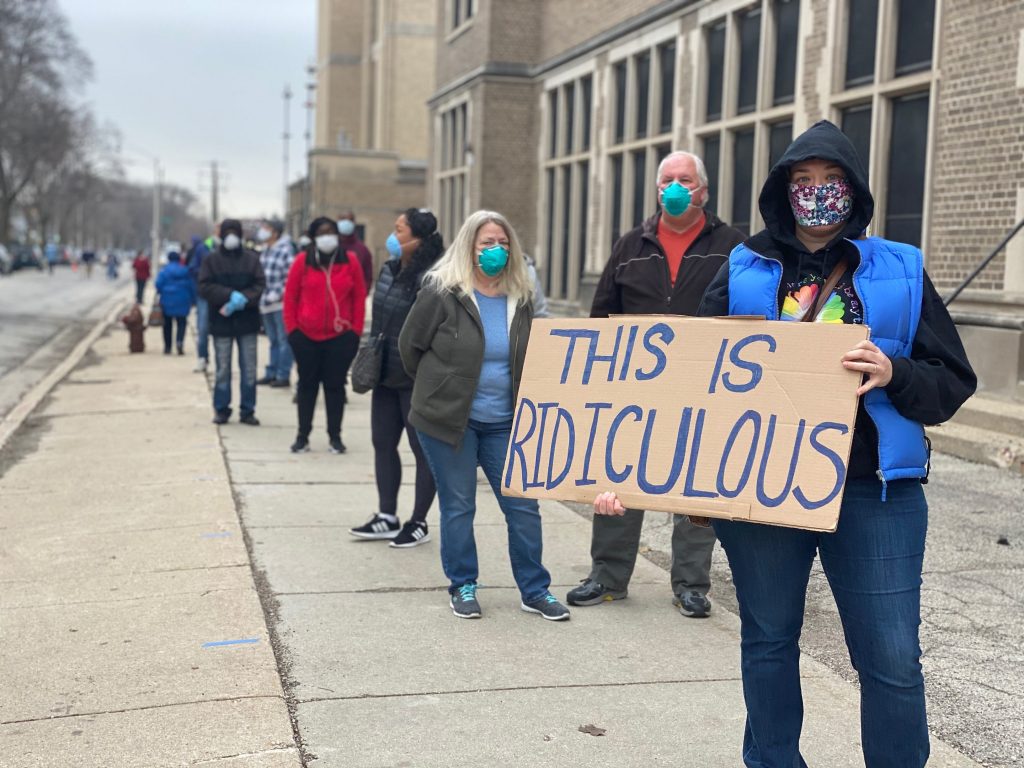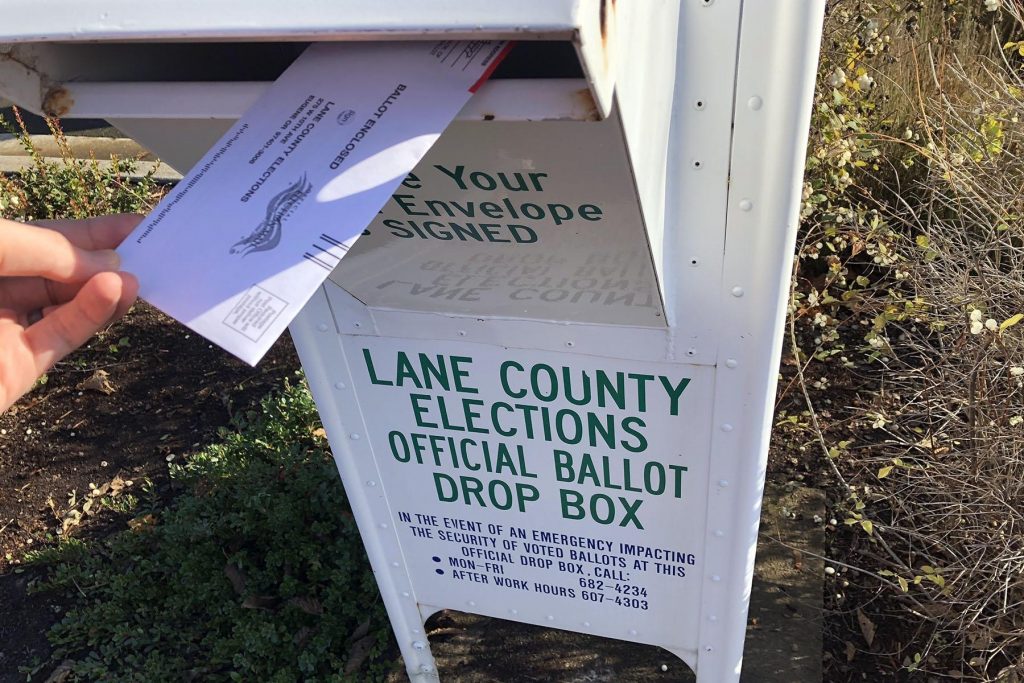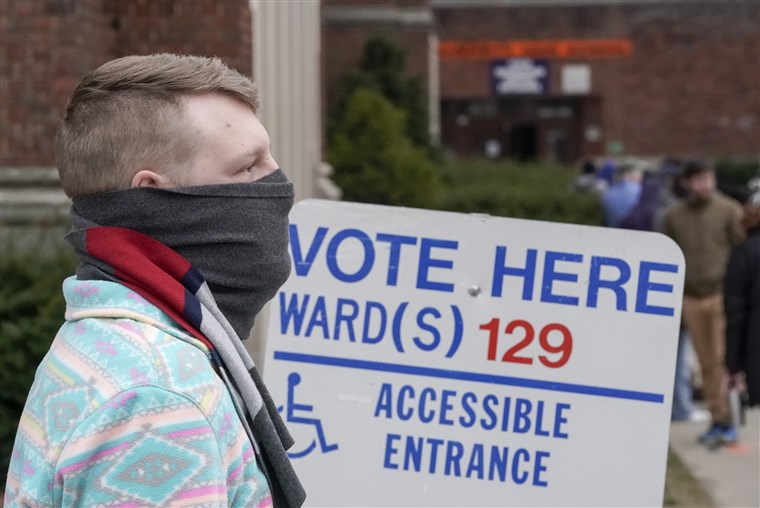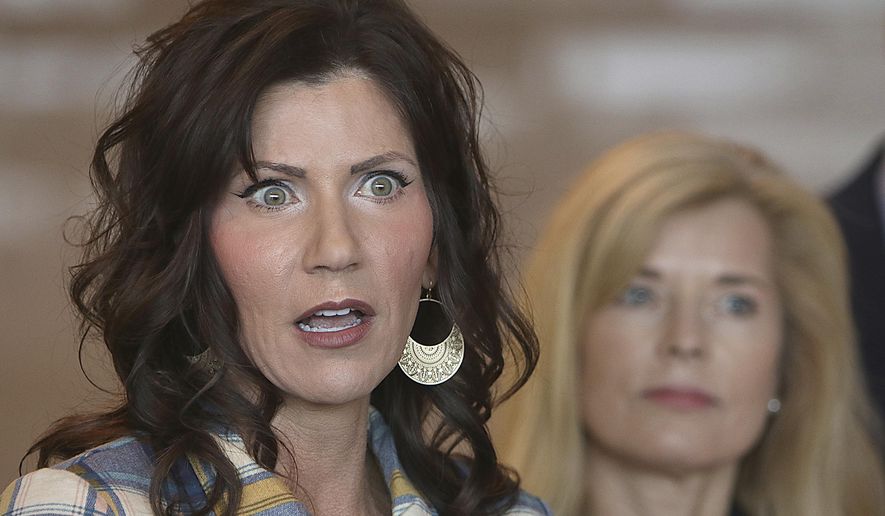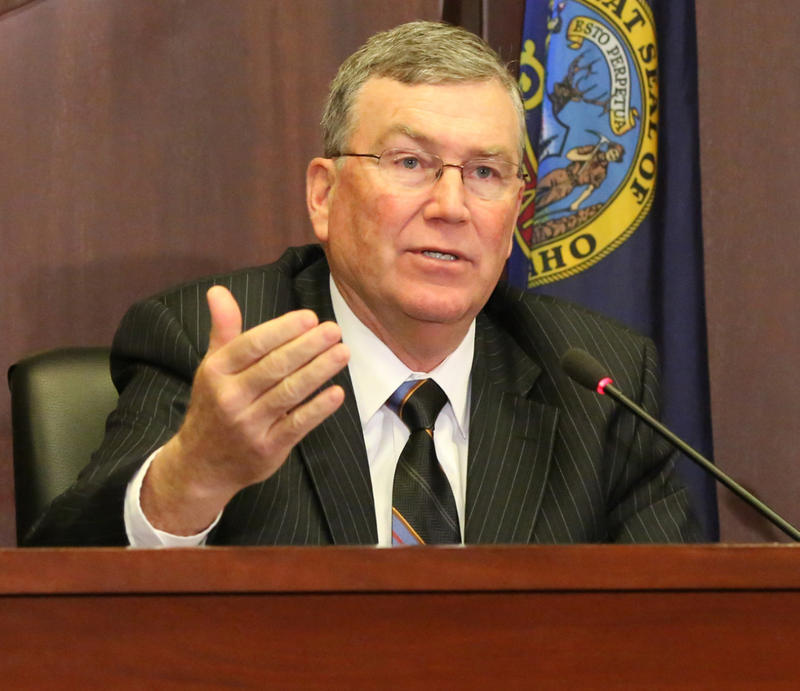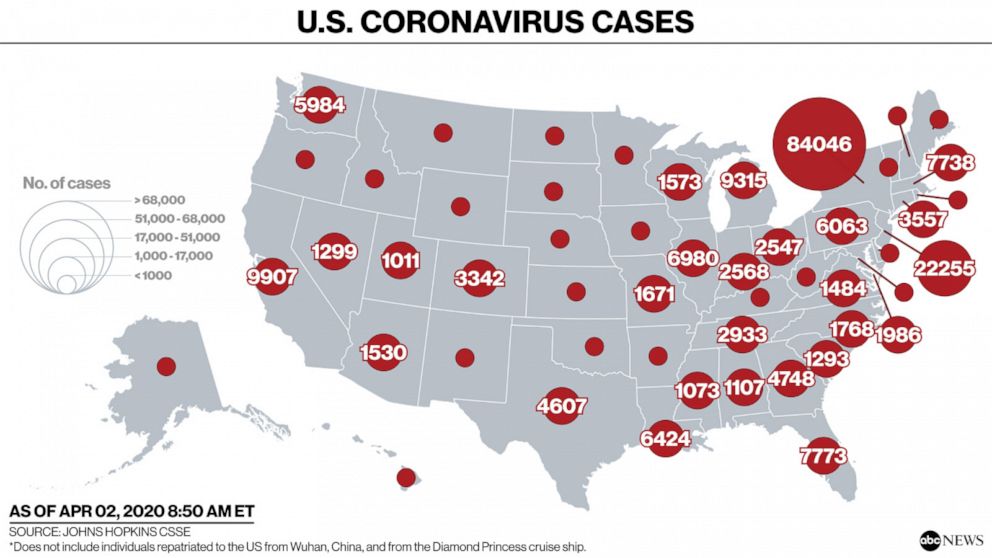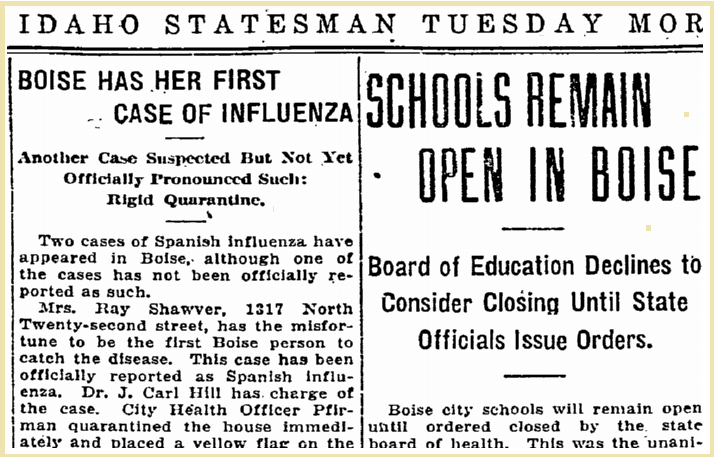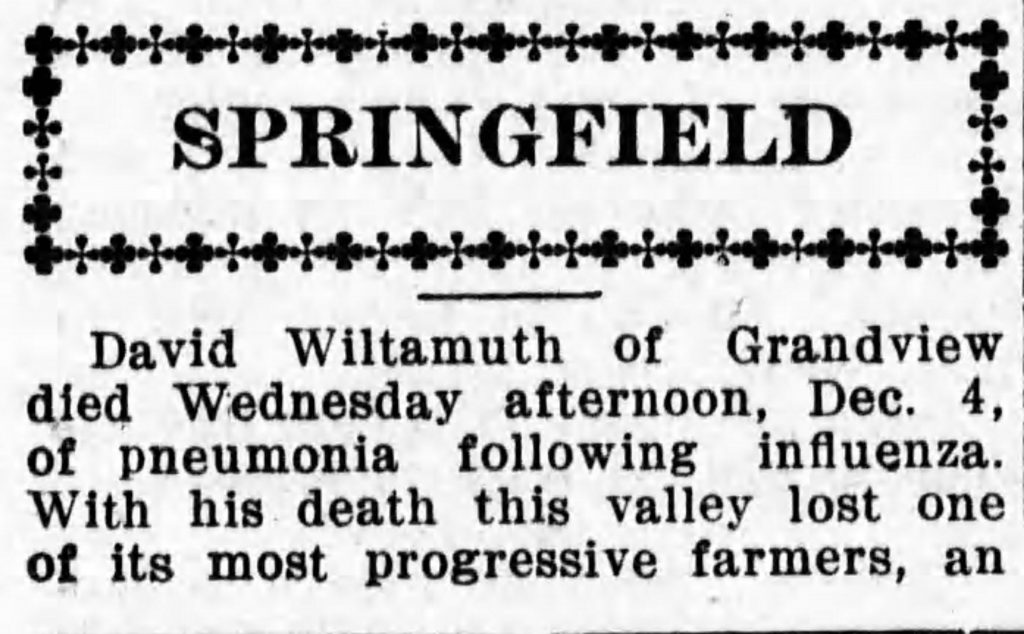The essential objective of the Republican Party for the next five months is to rewrite the history of the last three and a half years. The strategy is to throw up so much flak that distorts or revises reality that by election day enough voters are so thoroughly confused or so supremely disgusted that they won’t vote, concluding American democracy is just not worth the bother.
The GOP strategy is driven from top by a cult figure who, as conservative columnist Max Boot wrote recently, doubles as the “unhinged conspiracy-monger in the White House.”
Americans have for a long time, and very strangely, been susceptible to conspiracy theories. But now the old, standard wacky notions – the moon landing was faked, extraterrestrials landed in Roswell, New Mexico in 1947, Elvis is still alive – have given way to conspiracy theory as politics.

“Classically, conspiracy theories are propagated by people on the margins – they’re almost a weapon of the powerless, for holding the powerful to account,” says Russell Muirhead, a political scientist at Dartmouth College who has studied this American fixation with the nutty. “But right now the new stuff is coming directly from the powerful, which is really quite extraordinary.”
Donald Trump’s obsession with conspiracies provides both insight into his lack of character, as well his re-election strategy. Given his criminally botched response to a deadly pandemic that left 100,000 American dead in barely two months, while tanking the economy, perhaps for years, the Conspirator-in-Chief can hardly run on his record. He must shift attention to keep his most committed supporters both entertained and distracted from reality.
Trump’s one-time chief strategist, Steve Bannon, who also once headed Breitbart News, a website cesspool of half-baked nonsense and rightwing propaganda, perfectly described the GOP strategy in 2018. “The Democrats don’t matter,” Bannon told the writer Michael Lewis. “The real opposition is the media. And the way to deal with them is to flood the zone with shit.”
And that is precisely what Trump has been doing while his willing enablers, including the timid souls Idaho voters dispatch to represent them in Washington, D.C., stand by mute amid the fetid garbage.
Trump, of course, rode to real political prominence peddling the fake news that Barack Obama was not an American citizen. Many of his supporters bought the “birther” nonsense, and some still do. They also bought that Mexico would pay for his wall and that China would pay for his tariffs. Initially they bought his claim that the COVID-19 virus was “a hoax,” but clearly some conspiracy theories get overtaken by events.

Now Trump is asking them to buy the hoax that voting by mail will lead to vast corruption of the electoral process, a convenient claim for a guy who lost the popular vote by 2.8 million votes in 2016 and will need a spectacularly outrageous conspiracy theory to justify his loss in November.
The man the Internet whit Dave Pell calls “the Cloroxymoron” has, of course, had to manufacture new conspiracies as the old ones run out of steam. There is “Obamagate,” a conspiracy so deep and impenetrable that the White House press secretary declined to respond to a question about just what it was. Then came the spectacularly obscene charge emitting from the presidential Twitter feed that former Republican congressman and cable TV host Joe Scarborough may have murdered a young female staff member in 2001.
That odious one drew a poignant response from the woman’s husband who correctly accused the Republican president of having taken “something that does not belong to him — the memory of my dead wife — and perverted it for perceived political gain.”
In debunking the Scarborough nonsense, the Washington Post’s Craig Pittman might have been talking about the gutless lack of decency on the part of Idahoans like Rep. Mike Simpson and Sen. Mike Crapo, Republicans who know Scarborough because they served in Congress with him when he represented Florida.
“Trump’s tweets offer a reminder of the remarkable nature of the Trump era — that a sitting president can traffic in incendiary and false allegations while the political world around him remains largely silent, accustomed to Trump’s modern-day definition of presidential behavior,” Pittman wrote. “As with many such eruptions from the White House, there will probably be little if any consequence beyond, in this case, the collateral suffering of a private family in Florida.”
At this point let’s note that a recent Yahoo/YouGov poll reported that “44 percent of Republicans believe that Bill Gates is plotting to use a mass COVID-19 vaccination campaign as a pretext to implant microchips in billions of people and monitor their movements.” Yahoo News felt compelled to note that is “a widely debunked conspiracy theory with no basis in fact.”
That kind of statistic does, however, help explain why once sensible, fair minded guys like Crapo and Simpson now behave as they do in our Age of Trump. They have become paralyzed with the fear that the most fever swampish in the GOP base will turn on them.
It’s a reasonable fear. After all Oregon Republicans just nominated a U.S. Senate candidate who is a believer in the wacky QAnon conspiracy theories that promote Trump as a world savior, while Idaho Republicans like Janice McGeachin and Heather Scott have become the party’s modern day “Know Nothings.”

Some of the president’s most loyal followers – and most fervent conspiratorialists – have taken to calling Trump the “God Emperor,” but this emperor’s clothes are missing even if the two Mikes and so many others ignore the reality. Their essential cowardice exposes the profound ethical and moral rot in the modern GOP under Trump. It will follow them all their days.
“We are living through the most dangerous challenge to the free government of the United States that anyone alive has encountered,” David Frum wrote in his 2018 book Trumpocracy: The Corruption of the American Republic. Frum, the former George W. Bush speechwriter, has basically given up on the silent majority of GOP officeholders who have aided and abetted the intellectual destruction of their party.
“What happens next is up to you,” Frum writes, knowing that once principled conservatives like Simpson and Crapo, unable or unwilling to exercise leadership at a time of peril, will do nothing, while cowering in a corner literally and figuratively clutching their seats.
—–0—–
Additional reading:
Trump: The Manly Man
Conservative commentator Tom Nichols writes in The Atlantic that the president is the least manly man to ever occupy the Oval Office, and the mostly white men who support him make up a cult-like following that has an image of Donald Trump divorced from reality. Nichols writes: “Perhaps Howard Stern, of all people, said it best: ‘The oddity in all of this is the people Trump despises most, love him the most. The people who are voting for Trump for the most part … He’d be disgusted by them.’ The tragedy is that they are not disgusted by him in return.”

Masha Gessen on Rising Authoritarianism
I try to read everything the historian and essayist Masha Gessen writes, both for her insights into the rise of authoritarianism in the world, but also because she brings an immigrant’s perspective to our current moment. Gessen was born in Russia and wrote an excellent book explaining Vladimir Putin. She spoke recently with Interview magazine.
INTERVIEW: What is the worst-case scenario for the future?
GESSEN: A renewal and reinforcement of all kinds of borders—national, state, regional, whatever. We try to go back to exactly the way things were, and this means that the poor get poorer and the wealth gap grows. Two areas that are perhaps most in need of awakening and reinvention—healthcare and education—become worse versions of their already terrible selves. We learn nothing except that no one will help you.
Read the entire interview.
New York Without Newspapers in 1945
For 17 days in the summer of 1945 newspaper deliverymen went on strike. “All told, 14 major papers were left without their usual means of distribution. According to an estimate in the New York Times, some 13 million customers in the city and surrounding area were deprived of their daily newspaper.”
This is a cool story about a time when most Americans got all their news in a paper.
The Man in the Red Coat
And finally…I’ve been reading a slightly strange, yet deeply interesting book by Julian Barnes about some truly fascinating characters of what we now call “the Belle Epoque.”

“Barnes’s title comes from a magnificent full-length 1881 portrait of [Dr. Samuel] Pozzi by John Singer Sargent, which didn’t re-emerge into public view until 1990; Barnes tells us that viewing it was the original inspiration for this book. Sargent himself mentioned it in a letter to Henry James in London to introduce a visit from ‘Dr. S. Pozzi, the man in the red gown (not always), a very brilliant creature.'”
Highly recommended for the profiles of Oscar Wilde, Sarah Bernhardt and a cast of other “beautiful” people.
———
Thanks for reading. If you are inclined share or recommend this post to a friend. Stay safe.





